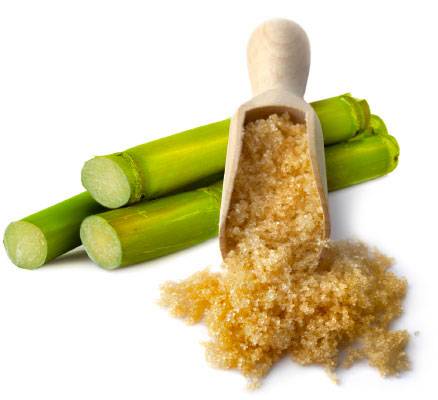The Trip of Cane Sugar Processing: From Harvest to Crystals
The Trip of Cane Sugar Processing: From Harvest to Crystals
Blog Article
A Thorough Summary of the Health And Wellness and Economic Ramifications of Walking Cane Sugar Processing on Neighborhood Neighborhoods
Cane sugar processing plays an essential function in shaping the financial landscape of local areas, offering job opportunity and promoting ancillary industries. Nonetheless, the health and wellness ramifications related to high sugar intake can not be forgotten, as they add to climbing rates of weight problems and diabetes. This nuanced vibrant welcomes a crucial examination of exactly how neighborhoods can maximize financial gains while addressing journalism wellness challenges they face. The expedition of sustainable techniques and instructional efforts may simply hold the trick to fixing up these clashing passions. What strategies might communities execute to achieve this balance?
Economic Advantages of Walking Cane Sugar Handling
Walking stick sugar processing uses substantial economic benefits that expand past the immediate farming market. The cultivation and handling of sugarcane produce numerous job opportunities, from farming to manufacturing and distribution. This employment generation not only sustains regional economies but likewise promotes area development by offering secure revenue sources for families.
Moreover, the sugar market boosts supplementary organizations, consisting of transportation, equipment supply, and product packaging solutions (Cane Sugar Processing). As these markets grow, they add to a much more robust financial framework, enhancing total area durability. The export potential of refined cane sugar better magnifies economic benefits, placing regions as competitive gamers in global markets
Financial investment in modern-day handling facilities can result in increased efficiency and performance, therefore lowering waste and optimizing source usage. This shift not just profits the local economic climate however also supports sustainability initiatives by minimizing ecological effects.
Additionally, the profits created from cane sugar handling can be reinvested in regional facilities, education and learning, and health care, advertising alternative area growth. Overall, the financial benefits of walking cane sugar handling are multifaceted, supplying a foundation for sustaining success in agricultural regions.
Health And Wellness Risks Related To Sugar Consumption
Too much sugar usage positions significant health and wellness dangers that call for serious attention. High intake of added sugars, especially from refined foods and drinks, has actually been linked to many health issues. Among one of the most pressing worries is excessive weight, as sweet diet plans add to an increased calorie consumption without offering important nutrients. This extra can result in metabolic conditions, including type 2 diabetes mellitus, which has become significantly common in both kids and grownups - Cane Sugar Processing.
Additionally, high sugar intake is related to cardio condition. Raised blood glucose degrees can lead to insulin resistance, a forerunner to various heart-related concerns. Additionally, sugar can have destructive impacts on oral health, leading to tooth cavities and gum condition, as germs in the mouth grow on sugar, producing acids that erode tooth enamel.
In addition, arising research study recommends a prospective web link in between high sugar usage and mental wellness conditions, such as clinical depression and anxiousness. As areas face these health risks, it comes to be necessary to promote recognition and encourage much healthier nutritional choices. Resolving sugar usage is crucial not just for specific health but likewise for the overall well-being of neighborhood communities, stressing the demand for detailed public health and wellness strategies.
Ecological Impacts of Sugar Production
Regularly neglected in conversations about sugar's implications is the substantial environmental impact of sugar manufacturing. The growing of sugarcane frequently necessitates comprehensive land usage, causing logging, loss of biodiversity, and disruption of neighborhood ecological communities. The conversion of woodlands and marshes right into sugar haciendas can result in environment destruction, harmful numerous varieties and modifying environmental equilibrium.
Additionally, sugar production is resource-intensive, consuming substantial quantities of water for irrigation. This can bring about depletion of regional water sources, negatively affecting both agricultural techniques and neighborhood accessibility to tidy water. In addition, making use of chemical plant foods you can try this out and chemicals in sugarcane farming can add to soil degradation and water contamination, as overflow from these chemicals gets in neighboring rivers and lakes, impacting marine life and human health.
The ecological impact reaches the processing phase, where energy intake and waste generation additional worsen eco-friendly worries. Air contamination from burning sugarcane fields, together with greenhouse gas discharges, add to climate modification. As such, the environmental effects of sugar manufacturing warrant serious consideration, urging stakeholders to adopt more lasting practices to mitigate these negative results on neighborhood ecological communities and communities.
Work Development and Neighborhood Development
The environmental challenges postured by sugar production are frequently counteracted by its possibility for financial benefits, specifically in work creation and area development. The cane sugar sector works as a considerable source of employment in numerous rural locations, giving jobs throughout numerous skill levels, from farming labor to handling and distribution functions. This employment not only supports individual households however also adds to the total economic vigor of local communities.
In addition, the facility of sugar handling centers boosts ancillary businesses, such as transportation services, devices supply, and upkeep companies. As these services prosper, they develop added jobs and bolster local economic climates. The earnings produced from the sugar sector likewise leads to boosted tax incomes, which can be reinvested right into social work such as infrastructure, education and learning, and health care growth.
Moreover, the sugar market commonly takes part in community development campaigns, such as sustaining regional colleges and wellness programs, thereby boosting the lifestyle for residents. By fostering strong area ties and advertising economic growth, the walking stick sugar handling sector plays an important duty in uplifting regional populations, making it a vital element of lasting growth approaches in sugar-producing regions.
Harmonizing Health and Economic Development
In browsing the complexities of cane sugar handling, use this link an important difficulty lies in balancing health factors to consider with financial growth. The sugar sector substantially adds to neighborhood economic climates by producing tasks, promoting related sectors, and boosting tax obligation earnings. However, the wellness implications connected with too much sugar intake can lead to chronic conditions such as excessive weight, diabetes, and cardiovascular problems, which can concern public health systems and reduce labor force productivity.

Moreover, governing structures can play a pivotal function in guiding industry practices towards more health-conscious and sustainable approaches. By promoting collaboration between government bodies, health organizations, and the sugar market, neighborhoods can navigate the dichotomy of health and financial growth, ensuring that the advantages of walking stick sugar handling are equitably shared while focusing on public health and wellness.
Final Thought
In conclusion, the processing of cane sugar offers both substantial financial benefits and remarkable health and wellness dangers for local official source neighborhoods. While it cultivates work production and promotes local development, the connected wellness issues, particularly pertaining to weight problems and diabetic issues, necessitate a mindful balancing act. By promoting accountable intake and investing in community education and learning and sustainable methods, it is possible to take full advantage of financial advantages while reducing unfavorable health impacts, consequently ensuring a healthier future for regional populations.
Additionally, sugar can have detrimental results on dental wellness, resulting in dental caries and gum condition, as microorganisms in the mouth flourish on sugar, creating acids that deteriorate tooth enamel.
Addressing sugar usage is critical not just for individual wellness yet additionally for the total wellness of local neighborhoods, highlighting the need for comprehensive public wellness methods.
Often ignored in conversations regarding sugar's implications is the significant ecological effect of sugar manufacturing. The health effects linked with extreme sugar intake can lead to chronic illness such as excessive weight, diabetes, and cardiovascular problems, which can worry public wellness systems and diminish labor force performance.

Report this page